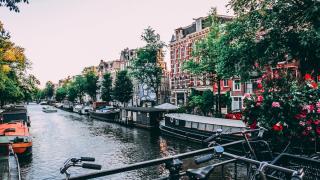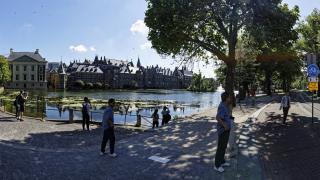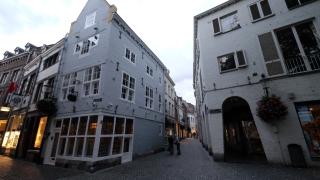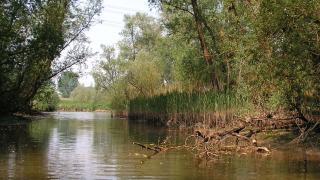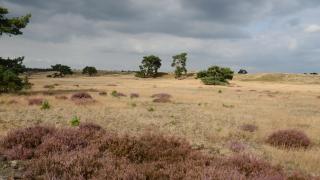Tasting the Dutch Way
Food tours in the Netherlands offer guided tastings of local specialties. Most tours take place in Amsterdam, Rotterdam, and Utrecht. Typical tours last 2-4 hours. Prices range from €40 to €70 per person. Local guides, such as Jan and Catharina in Amsterdam, lead small groups through historic neighborhoods. Participants sample Dutch cheese, bitterballen, poffertjes, and herring. Tours often include stops at traditional markets and family-run shops. Seasonal items like white asparagus ('wit goud') are featured in spring. Indonesian Rijsttafel is a popular tasting option, reflecting colonial influences. Vegetarian options are available at select stops. Many tours combine food with local history and architecture. The Jordaan district in Amsterdam is a frequent route, known for its immigrant heritage and food diversity. Tastings may include smoked eel, apple pie, and local craft beer. Tours operate year-round, with most starting in late morning or early afternoon. Group sizes are usually 8-12 people. Food tours are highly rated by visitors seeking an authentic Dutch experience.
Must-Try Dutch Delicacies
Dutch food tours highlight both iconic and regional specialties. Tours in Amsterdam often include:
- Stroopwafels: Thin caramel-filled waffles, sampled fresh at Albert Cuypmarkt.
- Haring: Raw herring, served with onions and pickles. Best tried at local haringkar stands from May to July.
- Poffertjes: Mini pancakes, dusted with powdered sugar. Found at street stalls and markets.
- Dutch cheese: Gouda and Edam tastings at specialist shops. Some tours visit cheese markets in Alkmaar or Edam.
- Bitterballen: Crispy beef or veal croquettes, often paired with local beer in brown cafés.
Regional tours offer unique flavors:
- Limburgse vlaai: Fruit tart from Limburg, included in Maastricht tours.
- White asparagus (asperges): Known as ‘white gold,’ available in spring, especially in the south.
Multicultural influences are strong:
- Indonesian rijsttafel: Rice table with multiple dishes, featured on Amsterdam and Rotterdam tours.
Vegetarian and vegan options are available:
- Tours highlight plant-based bitterballen, vegan cheese, and apple pie. Some routes include stops at top-rated vegetarian restaurants.
Tastings are usually included in the tour price. Portions are small, allowing sampling of 6-8 items per tour. Most tours last 2-4 hours and cover 1-2 kilometers on foot.
Top Food Tour Experiences
Amsterdam offers walking food tours in the Jordaan district. Tours visit local cafés, cheese shops, and street vendors. Typical tastings include bitterballen, aged Gouda, herring, and poffertjes. Most tours last 2.5 to 3 hours and cost €55-€65 per person. Local guides like Jan and Catharina share stories about Amsterdam’s food history and architecture.
Canal-side tasting tours combine boat rides with Dutch snacks and local beer. These tours often run in the afternoon or early evening. Prices start at €60 per person for a 2-hour cruise.
Market tours at Albert Cuypmarkt focus on fresh stroopwafels, Surinamese broodjes, and Dutch licorice. Tours run year-round, but spring tours highlight white asparagus (witte asperges), known as “white gold.”
Biking food tours are popular in Utrecht and Amsterdam. Groups cycle between bakeries, cheese shops, and breweries. Distances range from 5 to 10 km. Prices average €50-€70 per person.
Rotterdam features modern food tours in the Markthal and Katendrecht. Tastings include Rotterdamse kaas, Indonesian satay, and fresh seafood.
The Hague offers walking tours with stops for haring, Indonesian rijsttafel, and Haagse hopjes (coffee candies).
Most tours are in English and Dutch. Private group options are available. Vegetarian and halal tastings can be arranged on request. Tours run daily, with extra departures on weekends and holidays.
Dutch food tours often include stops at open-air markets like Albert Cuypmarkt or Noordermarkt. Vendors expect direct, polite interaction. Greet with "Goedemorgen" (good morning) or "Hallo." Ask "Mag ik dit proeven?" (May I taste this?) before sampling cheese or sausage. Most vendors speak English, but using basic Dutch is appreciated.
Expect small tasting portions—one or two bites per item. Typical tastings include local cheese, haring, and poffertjes. Eating herring "Hollandse Nieuwe" is done by holding it by the tail and dipping in onions. For cheese, use toothpicks provided. Avoid touching food with hands unless invited.
Tours usually last 2-4 hours and cover 1-2 kilometers on foot. Tasting stops are brief, 10-15 minutes each. If you have allergies or dietary restrictions, inform the guide at booking. Vegetarian and gluten-free options are available at most stops, especially in Amsterdam. For vegan diets, options are limited—ask in advance.
Prices for market snacks range from €1 for a stroopwafel to €3-€5 for cheese or fish tastings. Cash and cards are accepted. Always thank vendors with "Dank u wel."
Planning Your Culinary Adventure
Best times for Dutch food tours:
- Spring (April-June) for white asparagus season (witte goud) and outdoor tastings.
- Autumn (September-November) for new herring and apple pie specialties.
Booking tips:
- Book 2-4 weeks in advance for Amsterdam or Rotterdam tours, especially on weekends.
- Private tours are available; group tours are more common and cost-effective.
- Tours often start near Centraal Station or in the Jordaan district.
Accessibility:
- Most tours involve walking 2-3 km on cobblestones; check for step-free routes if needed.
- Notify operators of dietary needs (vegetarian, halal, gluten-free) when booking. Many Dutch guides accommodate requests.
Budgeting:
- Typical price: €45-€70 per person for 2-4 hour tours.
- Price usually includes 5-7 tastings, one drink, and a local guide.
- Extra drinks or market purchases are not included.
Final checklist:
- Wear comfortable shoes and bring a rain jacket.
- Carry a contactless card for extra purchases.
- Confirm meeting point and start time (often 11:00 or 14:00).
- Bring a small bag for market snacks.
- Arrive 10 minutes early; Dutch tours start on time.
